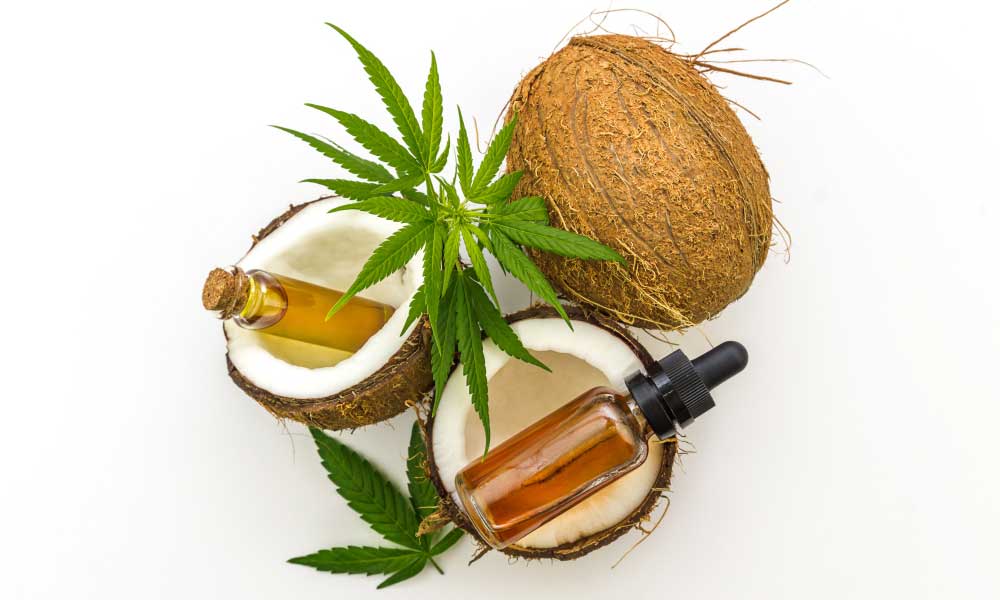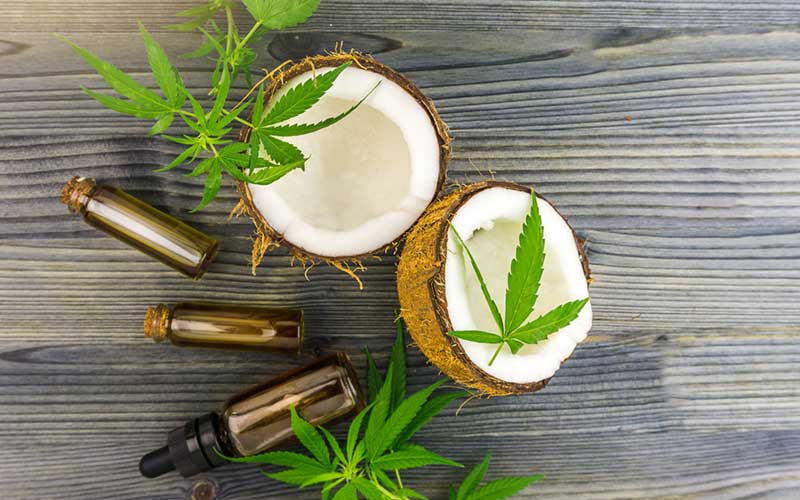
The manufacturing process of CBD products involves multiple components. Sometimes manufacturers add ingredients to enhance the effectiveness of CBD. This includes using MCTs such as coconut oil and hemp seed oil to improve the bioavailability of the CBD. So, which between these two MCT oils is better? When it comes to understanding their difference, it’s important to break down their sources and benefits. Keep on reading to find the best alternative between the two.
What is MCT Oil?
MCT means Medium-Chain Triglycerides. Structurally, MCTs contain three fatty acids and a glycerol molecule. These are partially man-made fats, with popular sources being coconut oil and hemp seed oil. They are generally food-grade products that are safe for consumption. They also work with the body’s cannabinoids to enhance energy production and improve brain health.
Coconut Oil vs Hemp Seed Oil: What’s the Difference
Coconut oil is obtained from the coconut’s kernel. It’s worth noting that coconut oil contains the richest and purest source of medium-chain triglycerides. Additionally, coconut oil contains unsaturated fats and long-chain triglycerides. It should be noted that the presence of lauric acid in coconut oil normally slows down food digestion and absorption.

On the other hand, hemp seed oil comes from the seeds of the hemp plants. The seeds are normally pressed to expel the oil. It’s worth noting that hemp seed oil contains large amounts of omega-3 and omega-6 fatty acids. These are good fats/ unsaturated fats with nine types of essential amino acids.
Hemp Seed Oil Extraction
The ideal method of extracting hemp seed oil is through cold pressing. “Cold-pressed” hemp seed is preferred because it keeps the true benefits and characteristics of the seed. However, cold pressing normally produces less oil. Besides that, it produces lower levels of phosphorus. Note that phosphorus is responsible for the “green” and “grassy flavor” found in some organic oil products.
Coconut Oil Extraction
You can extract coconut oil from the kernel/flesh of coconut through a variety of methods, including:
- Cold extraction
- Centrifugation
- Fermentation
- Hot Extraction
Cold Extraction
It’s almost similar to cold-pressing hemp seed oil. First, you need to remove the impurities by filtering the coconut extract and then grinding the flesh into a paste. After that, you should press the oil before filtering it again.
Centrifugation
The oil gets separated through high-speed spinning. You need to first derive the coconut milk from the flesh. If this milk sits for some hours, the oil will eventually separate naturally. However, centrifugation helps speed the whole process since it spins the mixture, making a move towards the center where you can easily collect it.
Fermentation
This is a natural process that separates the oil. First., you should use coconut flesh to produce coconut milk. Leave this milk to ferment naturally, and during this process, the oil will separate and remain on top later, where you can easily collect it.
Hot Extraction
This method involves heat; hence it’s not the most preferred since it reduces the quality of the organic compound. At high temperatures, the protein in the coconut destabilizes and releases oil. You can then filter it.
Benefits of Hemp Seed Oil
There are several health benefits that come with using hemp seed oil as a carrier oil. Let’s take a look at some of them:
- Good for brain health: Hemp seed oil contains 85% essential fatty acids that are good for the brain.
- Mercury-free: It should be noted that fish oil supplements are actually the best for brain development. However, fish usually contains lots of mercury that’s not good for the brain. Hemp seed oil is, therefore, a great alternative since its rich in omega-3 fatty acids.
- Supports healthy pregnancy Pain relief and inflammation reduction: Hemp seed oil contains high amounts of gamma-linoleic acid that treats inflammation. Additionally, the anti-inflammatory properties help to reduce pain.
Benefits of Coconut Oil
Coconut oil is used in a wide range of applications, including:
- Skin nourishing: It contains fatty acids and polyphenols that make it a great carrier oil for skincare and massage.
- Promote good health: Coconut oil contains MCT that helps to eliminate harmful viruses and bacteria from the body.
- Treat inflammation: The high amounts of polyphenols help soothe inflammation and eliminate free damaging radicals.
- Better digestion: Coconut oil aids the body to take more fat-soluble components such as magnesium and vitamins.
Hemp Seed Oil vs Coconut Oil: Which is Better?
Coconut oil contains high amounts of fats, making it the ultimate CBD oil carrier. It’s worth noting that cannabinoids work best in the presence of high lipid content. Coconut oil contains up to 90% saturated fat, unlike hemp seed contains 11% saturated fat. It’s also ideal for cooking since the saturated fat content mainly contains MCTS instead of LGTs.
So, you don’t have to worry about it clogging your arteries. Lastly, coconut oil is a good source of nature that’s easier for the body to metabolize, unlike complex carbohydrates.
All these features are what make it the ultimate carrier. CBD plus coconut oil is the perfect combination. It can easily break down and transport more CBD cells, ultimately leading to better CBD absorption to the body cells.
The Bottom Line
Both hemp seed and Coconut oils are great MCTs. That’s why they are popularly used as carrier oils in making CBD oil. Hemp seed oil is mercury-free and helps to enhance the brain’s health. Besides that, it contains gamma-linoleic acid that helps to treat inflammation and reduce pain.
On the other hand, coconut helps to nourish the skin, promote good health, and treat inflammation. However, which is the best MCT oil between the two? While the choice is based on personal preferences, MCT coconut oil has the upper hand. It’s safer to use, has many health benefits, and is readily available. Hemp seed MCT oil’s use is quite restricted due to the legality of hemp. Additionally, its profile isn’t versatile.
